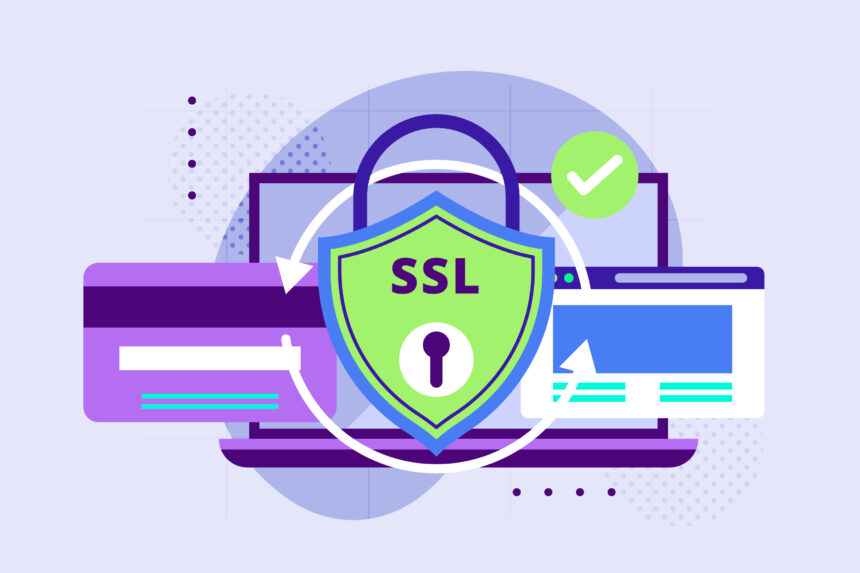SSL certificates, or Secure Sockets Layer certificates, are digital credentials that authenticate a website’s identity and encrypt data exchanged between the server and the user. By converting sensitive information into secure code, SSL ensures that data such as passwords, credit card details, and personal information are protected from interception by malicious actors. Websites with SSL are easily recognized by their HTTPS prefix and a padlock icon in the browser address bar, signaling users that the site is safe to interact with.
The primary role of SSL certificates in website security is to establish trust. In an age where cyber threats are pervasive, users are more likely to engage with sites that prioritize their safety. SSL prevents data tampering and eavesdropping by creating an encrypted channel between the server and the user. Beyond safeguarding user information, SSL certificates also authenticate the website itself, helping visitors verify that they are not dealing with a fraudulent or malicious site.
SSL certificates are not just about protecting users; they also benefit website owners. Search engines like Google reward secure websites with better visibility in search results, as HTTPS is considered a ranking signal. Moreover, SSL can improve user experience by reducing bounce rates—users are less likely to leave a site they perceive as trustworthy. For e-commerce platforms and businesses handling sensitive transactions, SSL is an indispensable tool for ensuring security, building credibility, and fostering long-term customer trust.
Do SSL certificates improve SEO rankings?
The claim that SSL certificates improve SEO rankings stems from Google’s 2014 announcement that HTTPS is a ranking signal. While the impact of SSL on rankings is relatively minor compared to factors like content quality and backlinks, it still plays a significant role in overall SEO strategy. SSL certificates enhance website security and user trust, indirectly contributing to better engagement metrics such as lower bounce rates and higher click-through rates. These user behaviors, in turn, positively influence SEO rankings, making SSL a crucial component for websites aiming to rank higher in search results.
What is an SSL certificate, and how does it work?
An SSL certificate is a digital security feature that ensures safe communication between a website and its users by encrypting data exchanged between them. It works by creating a secure, encrypted connection, preventing unauthorized access to sensitive information like passwords, credit card details, or personal data. When a website has SSL installed, it uses the HTTPS protocol instead of HTTP, signifying a secure connection. The SSL certificate also authenticates the website’s identity, ensuring visitors interact with a legitimate and trustworthy site.
How to get free SSL with affordable hosting plans?
To get a free SSL certificate for your website, many hosting providers offer it as part of their hosting plans. One of the best ways to secure your site without extra costs is to choose a hosting provider that includes free SSL certificates in their offerings. Cloudexter is a great choice, offering SSL certificates for free with its all hosting plans. Enhance control panel cloud web hosting plan start from just Rs. 75 per month, Cloudexter provides a reliable hosting solution with the added benefit of free SSL, ensuring your website is both secure and SEO-friendly without additional charges. With Cloudexter’s secure and cost-effective hosting, you can focus on building your site while enjoying peace of mind knowing your data is protected.
Difference between HTTP and HTTPS.
The difference between HTTP and HTTPS lies in security and data protection. HTTP (HyperText Transfer Protocol) facilitates the transfer of data between a web browser and a server but does so in plain text, making it vulnerable to interception by hackers. In contrast, HTTPS (HyperText Transfer Protocol Secure) uses an SSL certificate to encrypt data, ensuring that sensitive information like passwords or credit card details remains secure during transmission. The addition of HTTPS not only protects user privacy but also signals trustworthiness to visitors and search engines, making it an essential standard for modern websites.
Types of SSL certificates (e.g., Domain Validation, Organization Validation, Extended Validation).
SSL certificates come in three main types, each offering varying levels of validation and trust. Domain Validation (DV) certificates are the most basic, verifying only the domain’s ownership and providing encryption suitable for small websites or blogs. Organization Validation (OV) certificates add an extra layer by authenticating the organization’s legitimacy, making them ideal for businesses. The highest level of trust comes from Extended Validation (EV) certificates, which undergo rigorous checks and display the organization’s name in the browser address bar, offering maximum credibility for e-commerce or financial websites. Choosing the right type depends on the website’s purpose and trust requirements.
Google’s 2014 announcement prioritizing HTTPS in search rankings.
In 2014, Google announced that HTTPS would be considered a ranking signal in its search algorithm, encouraging website owners to adopt SSL certificates for better security. This move highlighted Google’s commitment to creating a safer web environment by rewarding secure websites with a slight boost in search rankings. While the impact of HTTPS as a ranking factor is relatively modest compared to major signals like quality content and backlinks, it reflects Google’s preference for secure, user-friendly sites. This announcement sparked widespread adoption of SSL certificates, as website owners recognized the dual benefits of improved security and potential SEO gains.
How SSL impacts ranking signals: Is it a major or minor factor?
SSL impacts SEO ranking signals as a minor but significant factor in Google’s algorithm. While it won’t singlehandedly push a website to the top of search results, it contributes to a secure and trustworthy user experience, which indirectly influences rankings. SSL ensures data encryption and enhances user confidence, leading to better engagement metrics like reduced bounce rates and higher click-through rates. These metrics, combined with the slight ranking boost HTTPS offers, make SSL an essential component of a well-rounded SEO strategy, particularly in competitive niches where every ranking signal counts.








